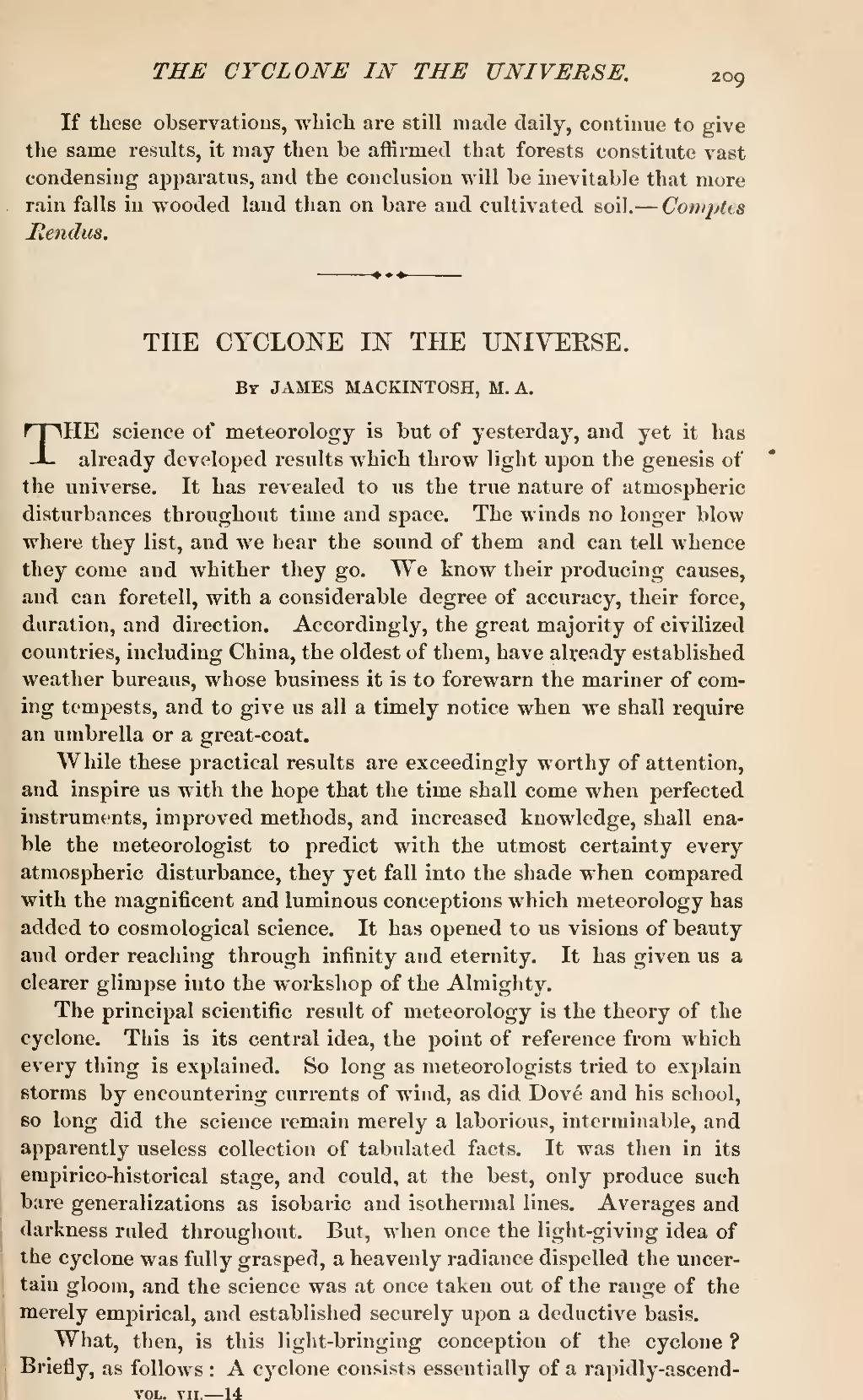If these observations, which are still made daily, continue to give the same results, it may then be affirmed that forests constitute vast condensing apparatus, and the conclusion will be inevitable that more rain falls in wooded land than on bare and cultivated soil.—Comptes Rendus.
| THE CYCLONE IN THE UNIVERSE. |
By JAMES MACKINTOSH, M. A.
THE science of meteorology is but of yesterday, and yet it has already developed results which throw light upon the genesis of the universe. It has revealed to us the true nature of atmospheric disturbances throughout time and space. The winds no longer blow where they list, and we hear the sound of them and can tell whence they come and whither they go. We know their producing causes, and can foretell, with a considerable degree of accuracy, their force, duration, and direction. Accordingly, the great majority of civilized countries, including China, the oldest of them, have already established weather bureaus, whose business it is to forewarn the mariner of coming tempests, and to give us all a timely notice when we shall require an umbrella or a great-coat.
While these practical results are exceedingly worthy of attention, and inspire us with the hope that the time shall come when perfected instruments, improved methods, and increased knowledge, shall enable the meteorologist to predict with the utmost certainty every atmospheric disturbance, they yet fall into the shade when compared with the magnificent and luminous conceptions which meteorology has added to cosmological science. It has opened to us visions of beauty and order reaching through infinity and eternity. It has given us a clearer glimpse into the workshop of the Almighty.
The principal scientific result of meteorology is the theory of the cyclone. This is its central idea, the point of reference from which every thing is explained. So long as meteorologists tried to explain storms by encountering currents of wind, as did Dove and his school, 60 long did the science remain merely a laborious, interminable, and apparently useless collection of tabulated facts. It was then in its empirico-historical stage, and could, at the best, only produce such bare generalizations as isobaric and isothermal lines. Averages and darkness ruled throughout. But, when once the light-giving idea of the cyclone was fully grasped, a heavenly radiance dispelled the uncertain gloom, and the science was at once taken out of the range of the merely empirical, and established securely upon a deductive basis.
What, then, is this light-bringing conception of the cyclone? Briefly, as follows: A cyclone consists essentially of a rapidly-ascend-
